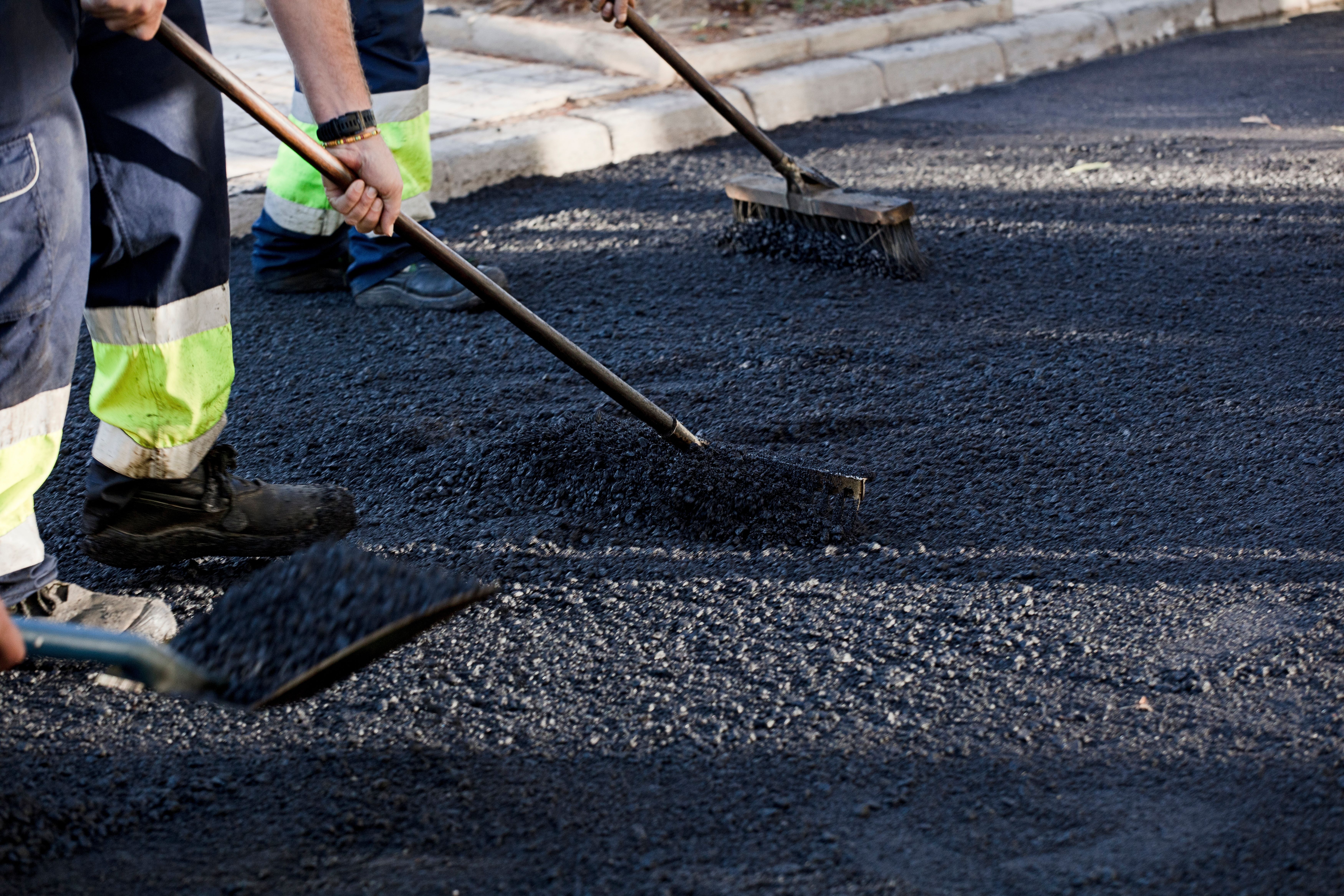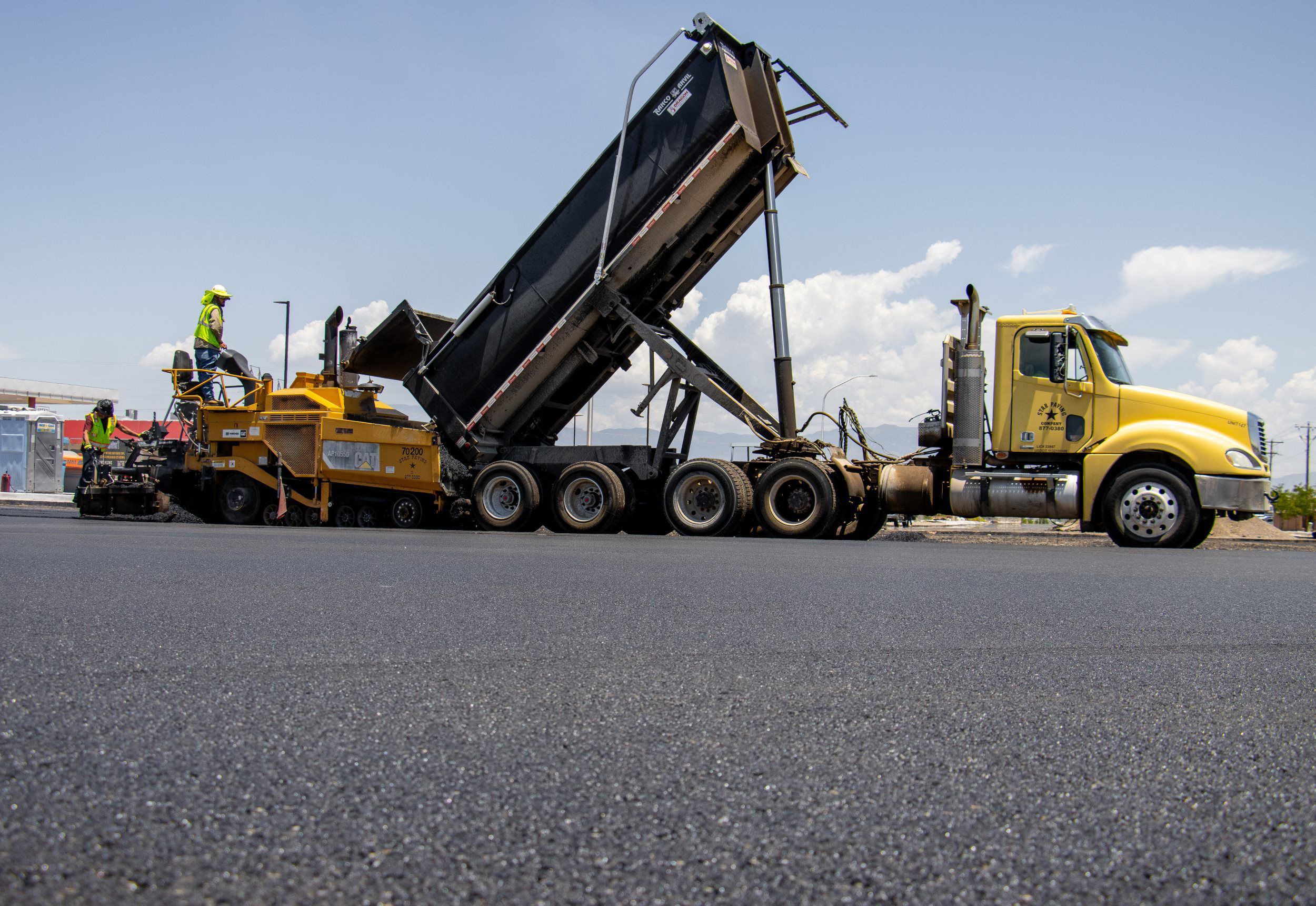
Asphalt is a durable paving material made from a mixture of aggregates like crushed stone, sand, and gravel, bound together with asphalt cement, a petroleum-based binder. This combination creates a flexible, weather-resistant surface ideal for roads, driveways, and parking lots.
At Star Paving Company, we use high-quality materials and proven techniques to deliver asphalt surfaces that are built to last. The right mix and expert application are key to long-term performance, and our team ensures every project meets the highest standards. Learn how our approach to asphalt outperforms other materials—and why it’s the smart choice for your next paving project.
Materials Used to Create Asphalt
What is asphalt made of? Asphalt is made of two main types of material:
○ Aggregate, including gravel, sand, and crushed stone
○ A binding agent like bitumen
Bitumen acts as a glue to hold together the aggregates in a strong, fixed form, such as a road or sidewalk.
HOW ASPHALT IS MANUFACTURED
How is asphalt made? Manufacturers follow a four-step process for creating asphalt:
1. The petrochemical industry extracts and refines bitumen, which is the residue or byproduct from refining crude oil.
2. Manufacturers produce aggregate material by selecting, washing, and drying the material, as well as choosing the right concentration of different aggregate materials.
3. Manufacturers then heat up the bitumen until it turns into a liquid before mixing in the right portions of different aggregates. At this stage, the asphalt is a hot mix asphalt (HMA).
4. Trucks transport the HMA to active sites, where paving machines lay out, compact, and finish the asphalt surface.
THE IMPORTANCE OF QUALITY IN ASPHALT
Asphalt isn't one-size-fits-all. The material is available in different tiers of quality based on the materials used, how it was made, and other factors like application and compaction. Higher-quality asphalt is superior because it:
• Requires less maintenance to stay smooth
• Provides better traction for roads, which can reduce hydroplaning risks
Looks better over time due to less visible wear and reduced cracking, which can improve or maintain property values
At Star Paving Company, we can advise our clients on different types of asphalt and choose the right one for different applications and budgets.
How Asphalt Is Different From Other Paving Materials
Asphalt is a popular paving material because of its durability, low maintenance needs, cost-effectiveness, and recyclability. But it's not the only paving material available.
WHAT IS ASPHALT?
Asphalt is a sustainable paving material made from aggregate and a binding material. It's commonly used to pave roads, airport runways, parking lots, and bicycle paths.
HOW ASPHALT IS APPLIED
High-quality asphalt application can make the surfaces last longer with fewer repairs and maintenance demands. The application process follows these steps:
1. Surface preparation: This includes removing old or broken asphalt, grading and sloping the ground underneath, and creating a strong sub-base of compact crushed stone.
2. Direct application: Once the HMA is on-site, construction crews can spread the asphalt over the prepared subsurface with paving equipment. The material must be even and flat. Next, crews use rollers or other equipment to compact the asphalt so it's dense and doesn't have internal flaws.
3. Markings: After the asphalt dries, crews can paint lines and crosswalks on the new surface.
ASPHALT VS. TARMAC, CONCRETE, AND PAVING
Two alternative paving materials are tarmac and concrete.
Asphalt and tarmac are similar. While asphalt uses bitumen as a binder, tarmac uses tar. Tarmac is still a popular material for airplane runways, but asphalt offers advantages in most other use cases.
Asphalt and concrete are both popular, but they each offer their own advantages. Concrete is longer-lasting, but it can be hard to repair and has a higher upfront cost. Asphalt is more affordable, has a faster installation process, and is easy to repair, but it will require more frequent repairs.
Choosing the right paving material for your project depends on your short-term and long-term budget, your timeline, and local restrictions or guidelines.
How to Maintain Asphalt
Asphalt can be simple to maintain. While it may generally require more repairs than concrete over time, professionals can easily lay long-lasting, high-quality asphalt pavement.
THE IMPORTANCE OF PROFESSIONAL APPLICATION AND REPAIR
There are two ways to keep asphalt in great shape. First, hire professional application teams that can properly pour and compact the asphalt during initial installation. Second, choose an experienced repair company that can create seamless, long-lasting patches and fixes.
Contact Star Paving Company for Expert Asphalt Applications
Knowing what asphalt is made of is just the start. At Star Paving Company, we offer high-quality asphalt installation and repair work to keep your walking and driving surfaces looking great. Contact us today to tell us more about your next project.




